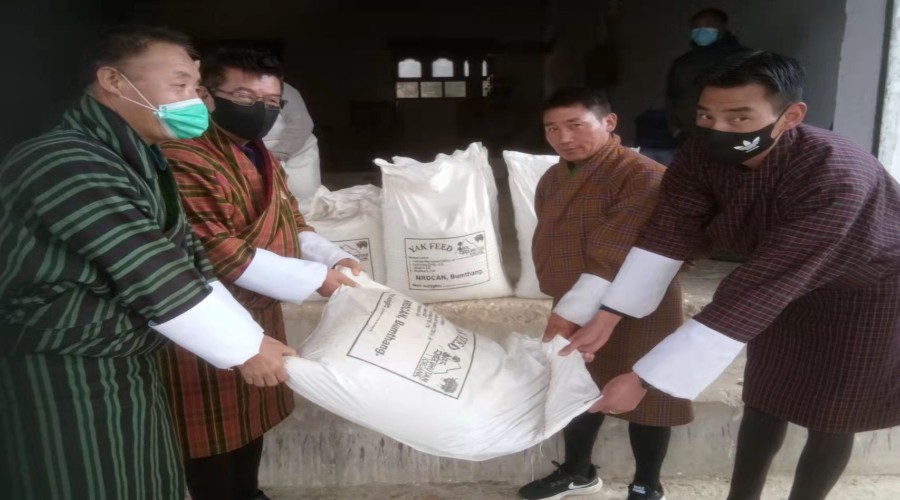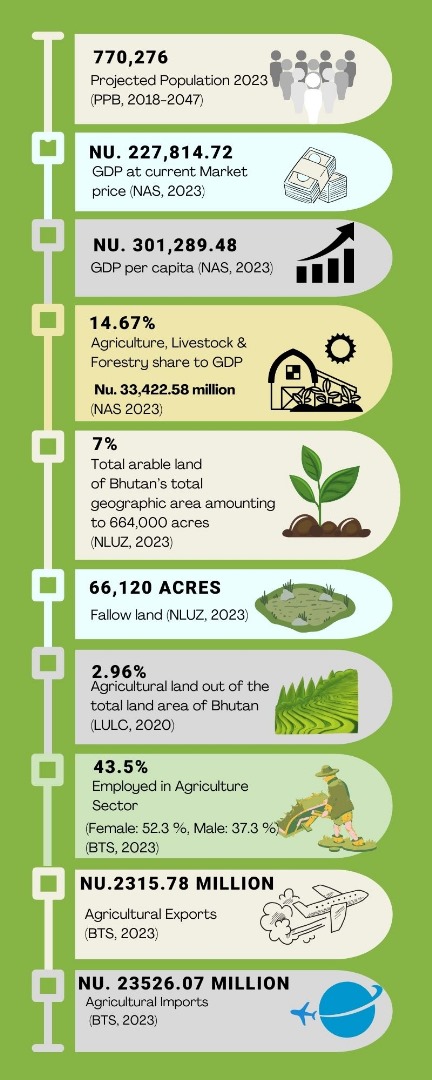The impact of global warming attributed to Cyclone Amphan which originated in the Bay of Bengal has caused disaster in the highlands of our nation, some surveys and studies have also found that there is a loss of rangelands areas due to the invasion of other shrubs and weeds. On 5 February 2022, 15 Dzongkhags experienced varying intensities of snowfall however, the northern part of Bhutan recorded almost 5 feet high snow this winter. Due to harsh winter weather, around 300 yaks have died in Bhutan possibly due to starvation.
In our country, natural hazards such as earthquakes, GLOFs, floods, landslides and forest fires are considered disasters. However, the disaster caused to the livestock of highlanders should be also considered as a disaster and come up with risk reduction initiatives or supportive projects/programs/activities to be undertaken by disaster management and the National Highland Research and Development Center, Jakar.
 The winter feed shortage is a challenge for the majority of the livestock farmers and it is more severe for the highland livestock, the yaks. Last week, as an immediate response to the situation, the National Research and Development Center for Animal Nutrition (NRDCAN), Bumthang formulated and handed over 2 MT of organic yak feed to the National Highland Research Development Center for further distribution to yak herders of Bumthang.
The winter feed shortage is a challenge for the majority of the livestock farmers and it is more severe for the highland livestock, the yaks. Last week, as an immediate response to the situation, the National Research and Development Center for Animal Nutrition (NRDCAN), Bumthang formulated and handed over 2 MT of organic yak feed to the National Highland Research Development Center for further distribution to yak herders of Bumthang.
The feed supplement during harsh winter is expected to improve yak nutrition and reduce yak mortality caused by starvation such as by recent snowfall. The program was implemented with the fund support from the National Organic Program.
Submitted by Sonam Wangchuk, Sr. Feed and Fodder Officer, NRDCAN
![]()




